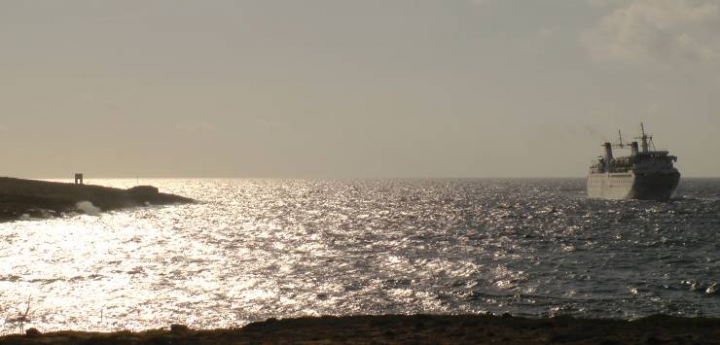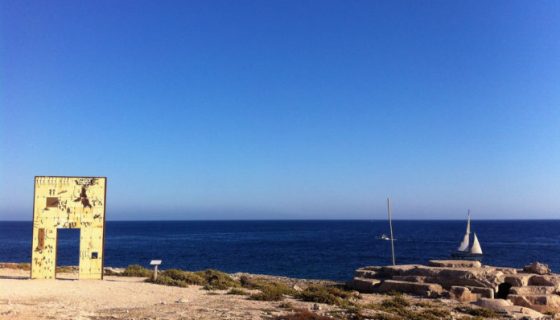- Mediterranean Hope - Federazione delle chiese evangeliche in Italia
- mh@fcei.it
Being Fingerprinted in Lampedusa
By Matteo de Fazio, Riforma.
A perspective from Lampedusa just few weeks after the reception centre turned into a hotspot. At the Lampedusa’s Commercial pier, sixty boys and girls from Eritrea have been waiting for the ferry to be transferred to Sicily. They smile, they are happy to leave. As if, behind the harbour and the sea, there were the very end of their journey – a journey that has begun long time before and during which they met other people and experienced violence and oppression. They are smiling: if the journey has not ended in Lampedusa (in which a few days before they were welcomed) at least they can leave from here. They made a step further little by little.
They were moved to the pier by bus. This bus boarded them directly from the reception centre. On October 4th, these same people have protested along the streets of Lampedusa for not releasing fingerprints. No fingerprint, no borders, freedom they shouted in the streets of the city centre. Leaving their fingerprints in Italy would tie them to our country in case they submit a request as refugee or condemn them to be repatriated, if they could not apply as refugees. After the departure of this group from Eritrea, a group of immigrants from North Africa has gone on hunger strike for two days for the same reason. Protests and demonstrations have quietened down. Perhaps the authorities would not get their fingerprints. At least not in Lampedusa. This situation, which went largely unnoticed in the media, can only confirm an important change in recent weeks, the transformation of the local reception centre in hotspot. Hotspot means a place of identification and registration of immigrants to allow them to enter a reception programme according to the European quotas: essentially divide economic migrants from those in need of protection. This is a distinction on which there is much to discuss. It seems to reduce the issue to a mere division between good and bad. However, when we talk about people who are looking for a better future, it makes no sense. “We should stop thinking of migrants as vulnerable. We must support and foster them”, said Francesco Piobbichi, operator at Mediterranean Hope – “They have the chance to fight for their rights, and this is a great opportunity also for our own rights. Together we will change the course of these events, for better or for worse”. For those who observe these phenomena, the protests are closely linked to the start of the identification hotspots. “To date the only active hotspots in Europe is the one in Lampedusa. The island is once again a place of experimentation and laboratory as for the policies of the European border – says the MH Observatory through the NEV agency – Italy should now place 24, 000 refugees in Europe and in 2015 have landed more than 130,000 people: what will happen to the rest? What will happen inside the hotspot when in a few months they will know that those who are fingerprinted will stay in Italy?” In the past few weeks, some immigrants, which have recently landed to Sicily after a brief interview with the police, were provided with a decree that forces them to leave Italy within 7 days, without the chance to apply for asylum. Thus, dozens of people will not have any tool to get oriented. This condition will encourage them to live in an illegal status, easily ending up in the net of crime. If hotspots are such a place in which apply quotas to reach, number and a quick bureaucracy, instead of elaborating the phenomenon what will become Lampedusa? What if residents, who now greet the last tourists, accept this sad role for their island, which over the years has experienced many cycles relating to immigration flow and many changes that are often set out by other entities. The MH Observatory in Lampedusa is wondering about what will be the future changes on the island, with the development of the hotspot: the border is moving liquidly. “Many people say that Lampedusa is a place of welcome, but I think it is more than this – says Piobbichi – Lampedusa is surely the island of salvation for immigrants, but paradoxically it is the island of segregation. Hundreds of kids are closed in the reception centre waiting to be registered as refugees or economic migrants that means to live a clandestine life. We have been also working to break this mechanism”.





